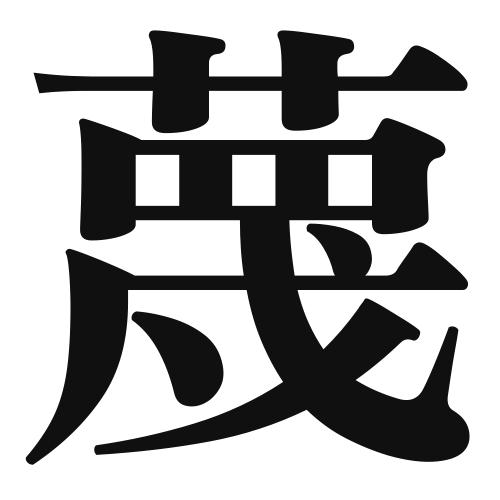1. Overview of Meaning
The kanji 蔑 (betu) means “to despise” or “to scorn.” It conveys a sense of disdain or contempt towards someone or something.
2. Formation and Radical
The kanji 蔑 is composed of two parts: the radical 艹 (grass) and the phonetic component 滅 (metsu), which means “to perish” or “to extinguish.” This combination suggests a sense of something being diminished or looked down upon.
The radical 艹 often relates to plants or nature, which can imply a connection to growth or life, contrasting with the meaning of scorn.
3. Examples of Usage
Common words and phrases that include 蔑 are:
- 蔑視 (betsushi) – contempt, disdain
- 蔑まれる (sorowareru) – to be despised
Example sentence in daily conversation:
「彼は他人を蔑視することが多い。」
(He often despises others.)
4. Synonyms and Antonyms
Similar kanji with related meanings include:
- 軽蔑 (keibetsu) – contempt, which is more about a dismissive attitude.
Antonyms include:
- 尊敬 (sonkei) – respect, which conveys admiration and esteem.
5. Cultural and Historical Background
The kanji 蔑 has cultural significance in Japan, often reflecting social attitudes towards hierarchy and respect. In traditional Japanese culture, showing respect is paramount, and the act of despising someone can have serious social implications.
Proverbs and idiomatic expressions that relate to this kanji include:
- 人を蔑む者は自らを蔑む (Hito o sabetsu suru mono wa mizukara o sabetsu suru) – “Those who despise others despise themselves.” This highlights the idea that contempt for others reflects poorly on oneself.
